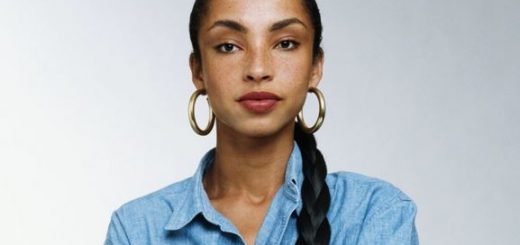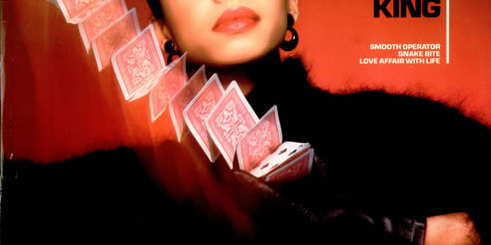Jezebel by Sade Lyrics Meaning – Unraveling the Enigma of an Iconoclast
Lyrics
She probably had less than every one of us
But when she knew how to walk, she knew
How to bring the house down
Can’t blame her for her beauty
She wins with her hands down
Jezebel, what a belle
Looks like a princess in her new dress
How did you get that?
“Do you really want to know,” she said
It would seem she’s on her way
It’s more, more than just a dream
She put on her stockings and shoes
Had nothing to lose, she said it was worth it
Reach for the top
And the sun is gonna shine
“Every winter was a war”, she said
“I want to get what’s mine”
Jezebel, Jezebel
Won’t try to deny where she came from
You can see it in her pride
And the raven in her eyes
Try show her a better way
She’ll say, “you don’t know what you’ve been missing”
By the time she blinks, you know she won’t be listening
“Reach for the top,” she said
“And the sun is gonna shine”
“Every winter was a war,” she said
“I want to get what’s mine”
In the pantheon of Sade’s sultry ballads and smoky-voiced tales, ‘Jezebel’ stands out as a narrative enriched with defiance, pride, and a touch of tragedy. A dive into the lyrics peels back the layers of a story told with poetic grace, exposing veins of raw human experience that Sade has been revered for capturing so evocatively.
This analysis invites you not only to understand the alluring narrative of ‘Jezebel’ but also to appreciate the subtext and how it resonates with listeners. Through its haunting melodies and Sade’s signature delivery, ‘Jezebel’ becomes an anthem of self-assertion and a commentary on society’s perception of female agency.
The Ballad of an Underdog – Empowerment from the Ground Up
Sade’s ‘Jezebel’ is no mere recount of a woman’s journey; it is an ode to resilience. Jezebel’s story is universally relatable — it speaks of humble beginnings and the relentless pursuit of one’s dreams despite societal barriers. The lack of a silver spoon merely fuels her resolve, making her victories all the more poignant.
Beauty and brains, determination and seduction—Jezebel uses all she has to upend expectations. Her ‘princess’ transformation isn’t luck; it’s a hard-earned triumph. The subtext here isn’t just about overcoming poverty; it’s challenging the narrative that those who start with less are worth less.
Unveiling Jezebel’s Dilemma – Between Condemnation & Admiration
In the lexicon of cultural symbols, ‘Jezebel’ is often synonymous with a kind of seductive treachery. However, Sade’s song reclaims the name, casting Jezebel as a protagonist fighting against prejudice. We’re prompted to question our quickness to judge based on one’s past or the path they took to ascend.
The dichotomy of condemnation and admiration that Jezebel faces bears out the complexities of womanhood and independence. The critical gaze she’s under lays bare a societal double standard: glory for her beauty but critique for her audacity to own it.
Decoding ‘Jezebel’s’ Hidden Meaning – The Raven’s Insight
The reference to ‘the raven in her eyes’ adds a layer of enigmatic depth to Jezebel’s character. In literature, ravens often symbolize knowledge and change, or as omens. Here, Sade hints that Jezebel is aware of her transformation and its implications. Yet, she’s also a harbinger of change, challenging norms and rewriting her destiny.
It’s a call to read between the lines—to see Jezebel’s defiance not as arrogance but as an innate right to personal freedom and self-determination. The line implies that she sees and understands the world differently, perhaps with a wisdom that others fail to perceive.
Jezebel’s Anthem – Memorable Lines that Cut Deep
‘Every winter was a war,’ Jezebel declares, a testament to her struggles. Each word Sade sings carries weight, the gravity of fighting against a relentless barrage of life’s harshness. In these lines, we not only feel Jezebel’s pain but also her relentless spirit to overcome it.
The chorus, ‘Reach for the top, and the sun is gonna shine’ serves both as Jezebel’s personal mantra and a universal call to persevere. They’re words that resonate, that inspire us to strive for our ‘top,’ despite the coldness of our own winters. Jezebel’s spirit is thus immortalized, beckoning us to find our rays of sun.
The Lasting Legacy of Jezebel – A Woman’s Right to Her Crown
Sade’s ‘Jezebel’ is more than a song. It’s a narrative of a woman’s right to claim her individuality and authority in a world still rife with outdated confines. Through this character, Sade vocalizes a cry for the recognition of women’s battles and their victories, regardless of the means.
At its core, ‘Jezebel’ digs into the themes of autonomy and the human right to chase a better life, against the tides of judgment. It’s Sade’s musical embodiment of feminism—told with dignity, laced with struggle, and ultimately soaring on the wings of its own aspirations.








